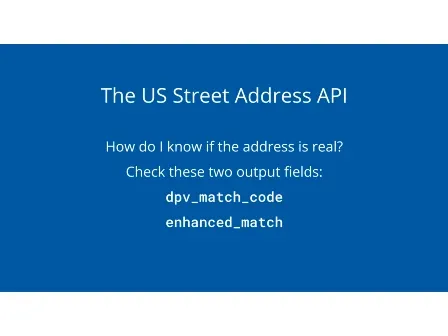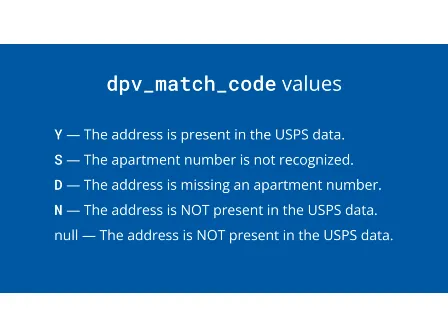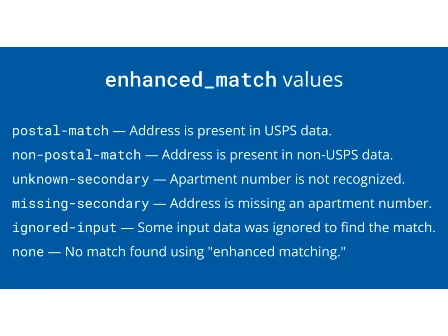The API whisperer: How to analyze Smarty's API output like a pro

Smarty's US Street Address API and International Street Address API provide a lot of output. Things like Carrier Route, Congressional District, geocode, eLOT sequence, timezone, and much much more are available with every address check.
But there may be points of data that you are not entirely sure what it means, or how to use it.
In a recent webinar, we brought Lyle Durland, Head of Support, and Jeffrey Duncan, Technical Product Manager, together to outline some of the more useful points of data, and how to interpret it. Watch it now.

Lyle began by pointing out that there are two particular properties that are extremely valuable: DPV Match Code, and Enhanced Match. These data points will answer:
- Which addresses are valid?
- Does an address actually exists or not?
- Which mail carriers and delivery services will be able to deliver a letter or package to the address?
- Is the address in the output is the same one in the input?
First, here are the possible values for DPV Match Code.

So this tells you if an address is present in the USPS data and can be delivered by them. It can be handy to know if you're mailing something to discover that you're missing an apparent number.
There are some carriers that will ship to addresses that are not in the USPS address database but still exist.
This is where Enhanced Match data can come in very handy.

If an address is marked as non-postal-match in the enhanced match data then you can likely still mail it.
To learn more of the details of these properties, you can view the full webinar recording here.

 Jeffrey Duncan
Jeffrey Duncan Andrew Townsend
Andrew Townsend